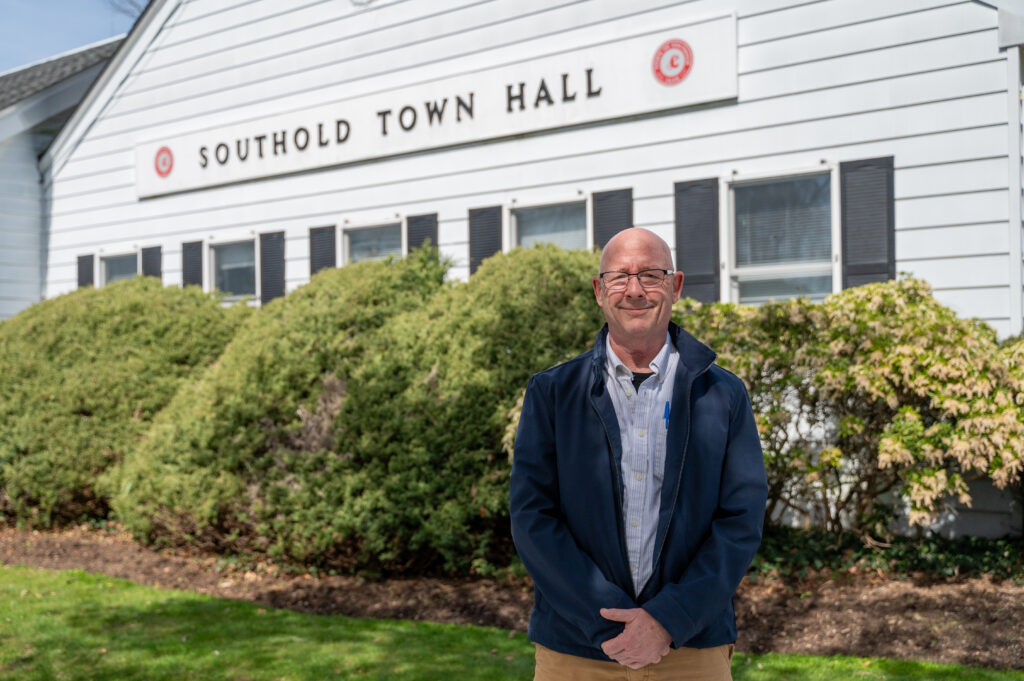Trustees recommend requiring nitrogen-reducing wastewater systems near wetlands

The Southold Town Trustees are recommending that the Town Board put forth legislation that would require any new construction, replacement of a dwelling or major remodeling within the trustees jurisdiction to install innovative or alternative wastewater systems.
Doing so would be a small part of a larger comprehensive plan needed to reverse water pollution, according to a letter Trustees president Mike Domino read to the Town Board at Tuesday morning’s work session.
“The resurgence of new construction on the remaining vacant shorefront properties where depth to groundwater is always an issue should require the installation of the most technologically advanced, on-site sewage treatment methods available,” according to the letter. “Similarly, the Town can no longer allow small waterfront cottages with 1930’s era cesspools to transform into 4,000-plus square-foot mansions without a mandated upgrade in the sanitary system.”
Both Southampton Town and East Hampton passed local laws last year to require nitrogen reducing sanitary systems, Southold Town engineer Michael Collins noted during the meeting. There is currently no countywide requirement on innovative and alternative wastewater systems for new construction.
The Trustees and town’s engineering department began discussions about creating a such a law, according to the letter.
The Board of Trustees’ jurisdiction includes all activity within 100 feet of the town wetlands. At the town board work session on Tuesday morning, Supervisor Scott Russell said it is worth discussing whether a broader requirement that would extend beyond a 100-foot setback should be required.
Councilman William Ruland said there is solid evidence suggesting the recommendation should be carried out as soon as possible, considering testing results that are available on the health of the Peconic Bay Estuary.
“The only reason we do want to rush this is every month we see at least one if not more applications where it’s a huge renovation or a knock-down on a creek and it’s almost a shame to move forward with that project knowing we do have the technology, so I think that’s been out major concern,” Trustee Nick Krupski said.
The supervisor said meetings will be set up quickly for the near future to discuss the potential requirement.
“We really want to get moving on this,” Trustee John Bredemeyer said. “It’s a generational problem and we may be the generation to start fixing it.”








